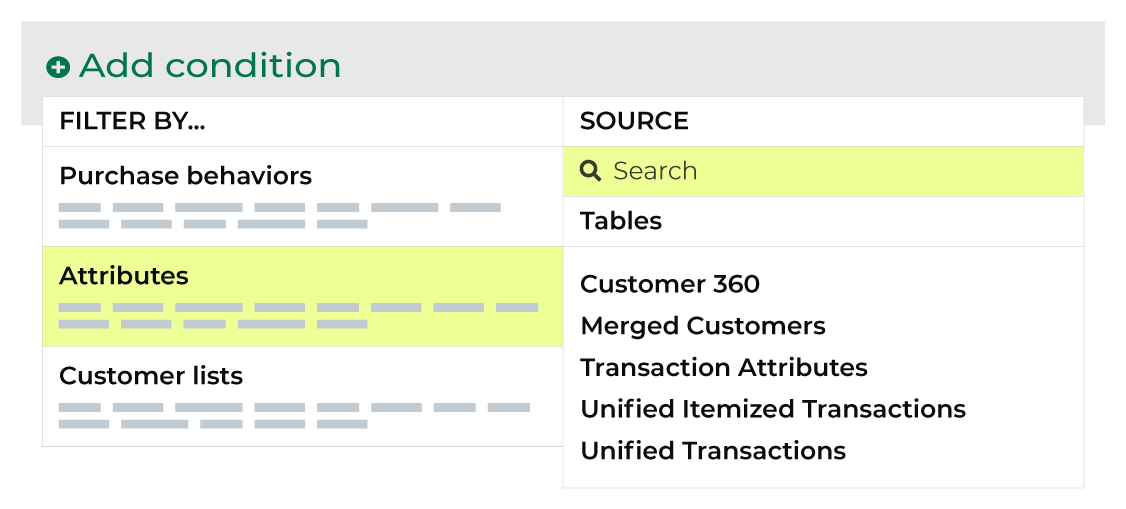Costs¶
Costs represent the underlying cost for items within a transaction:
Item cost is the cost to produce all units of an item.
Order cost represents the total cost of goods sold (COGS) for a single transaction, minus returns, cancellations, and discounts.
Unit cost is the cost to produce a single unit of one item.
Use in segments¶
You can add cost attributes to a segment from the Segment Editor. Click Add condition, and then choose Attributes.

Enter “cost” into the search feature to filter the list of available attributes. Choose item cost, order cost, or unit cost to add the attribute to a segment. Select an operator, and then finish defining the conditions for how this attribute should be applied to the segment.
Available operators¶
The following table lists the operators that are available to these attributes.
Note
These attributes have a decimal data type. All decimal data types share the same set of operators. Recommended operators for this attribute are identified with “ More useful” and operators with more limited use cases are identified with “ Less useful”.
Operator |
Description |
|---|---|
is |
Less useful Returns a specific cost amount, such as “47.99”, “59.99”, or “79.99”. Tip Use the following operators to return a range of cost amounts instead of a specific cost amount: is between, is greater than, is greater than or equal to, is less than, and is less than or equal to. |
is between |
More useful Returns a range of cost amounts that are between the specified cost amounts. |
is greater than |
More useful Returns cost amounts that are greater than the specified cost amount. |
is greater than or equal to |
More useful Returns cost amounts that are greater than or equal to the specified cost amount. |
is in list |
Less useful Avoid using the is in list condition. Individual cost amounts are not typically made available in a list. |
is less than |
More useful Returns cost amounts that are less than the specified cost amount. |
is less than or equal to |
More useful Returns cost amounts that are less than or equal to the specified cost amount. |
is not |
Less useful Avoid using the is not condition. For example, if you specified “59.99” then any cost amounts less than or equal to “59.98” and any cost amounts greater than or equal to “60.00” would be returned. |
is not between |
Less useful Discovers outlier revenue. For example, if most of your cost amounts are between “59.99” and “89.99”, use “59.99” and “89.99” to return cost amounts that were less than and greater than those values. |
is not in list |
Less useful Avoid using the is not in list condition when individual revenue amounts are not made available as a list. |
is not NULL |
Returns customer records that have a value, such as “12.45”, “24.75”, and “127.99”, but also “ “ (a space) and “0” (zero). If the record has any value it is returned. |
is NULL |
Returns customer records that do not have a value. |